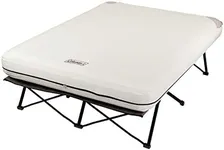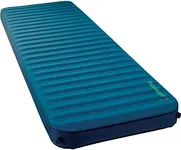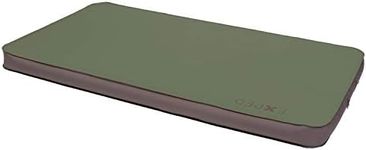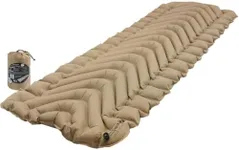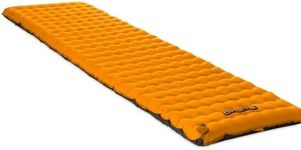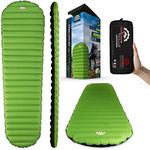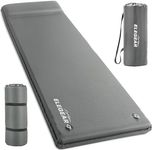Buying Guide for the Best Camping Mattress
Choosing the right camping mattress can make a huge difference in how well you sleep outdoors. The best mattress for you depends on your camping style, how much you value comfort versus portability, and the conditions you expect to encounter. Before you buy, think about whether you'll be backpacking or car camping, how much space you have, and what kind of weather you'll face. Understanding the key features will help you find a mattress that keeps you comfortable and well-rested during your adventures.Type (Foam, Air, Self-Inflating)The type of camping mattress refers to how it is constructed and how it provides cushioning. Foam mattresses are simple, durable, and provide insulation even if punctured, making them great for rough use or cold conditions. Air mattresses are lightweight and pack down small, but require inflation and can be less reliable if punctured. Self-inflating mattresses combine foam and air, offering a balance of comfort, insulation, and convenience. If you prioritize comfort and don't mind extra weight, self-inflating or air mattresses are good choices. For lightweight backpacking or rugged conditions, foam pads are often preferred.
ThicknessThickness determines how much cushioning and support you get from the mattress. Thinner mattresses (under 1 inch) are lighter and more compact, suitable for backpackers who need to save space and weight. Medium thickness (1-2.5 inches) offers a balance between comfort and portability, making them versatile for most campers. Thicker mattresses (over 2.5 inches) provide the most comfort and are ideal for car camping or those who have trouble sleeping on hard surfaces. Choose thickness based on your comfort needs and how much you can carry.
R-Value (Insulation)R-Value measures how well the mattress insulates you from the cold ground. A low R-value (under 2) is suitable for warm weather camping. Medium R-values (2-4) work for three-season use, while high R-values (over 4) are best for cold weather or winter camping. If you camp in colder conditions or are sensitive to cold, look for a higher R-value to stay warm at night. For summer camping, a lower R-value is usually sufficient.
Packed Size and WeightPacked size and weight refer to how small and light the mattress is when stored. Lightweight and compact mattresses are essential for backpackers who need to minimize their load. Heavier and bulkier mattresses are fine for car camping where space and weight are less of a concern. Consider how you’ll be transporting your mattress and how much room you have in your pack or vehicle to decide what size and weight are manageable for you.
Durability and MaterialDurability depends on the materials used and the construction of the mattress. Thicker fabrics and reinforced seams make a mattress more resistant to punctures and wear, which is important if you camp on rough terrain. Softer materials may feel nicer against your skin but can be less durable. If you expect to use your mattress frequently or in challenging environments, prioritize durability. For occasional use on smooth ground, lighter materials may be sufficient.
Ease of Inflation/DeflationEase of inflation and deflation affects how quickly you can set up and pack away your mattress. Some mattresses require manual inflation with your breath or a pump, while others are self-inflating and only need a few breaths to top off. Quick and easy inflation is convenient, especially after a long day. If you want a hassle-free setup, look for self-inflating options or those with efficient valves.

